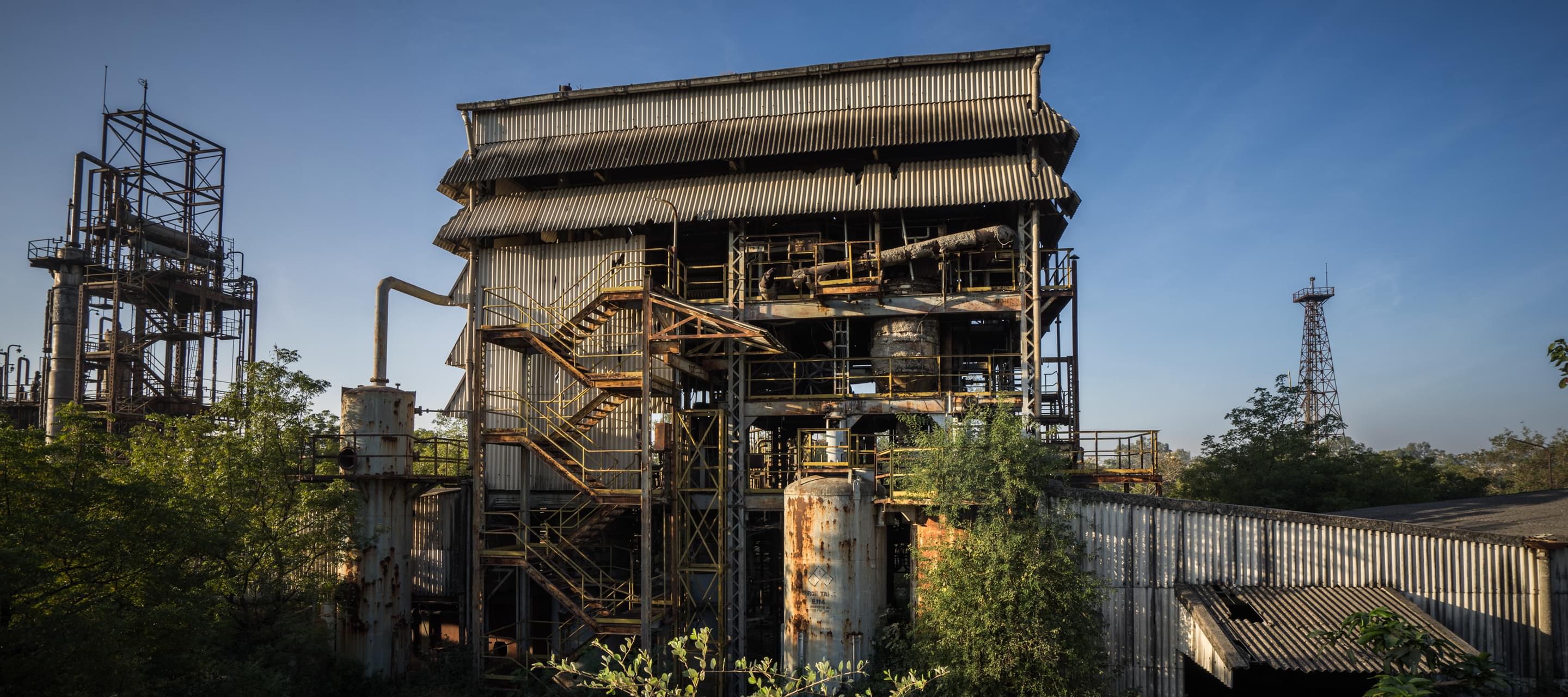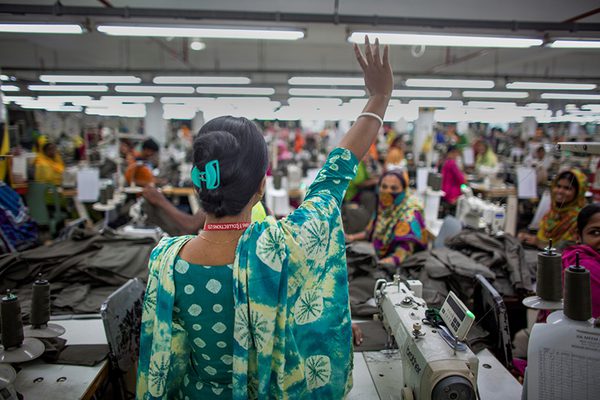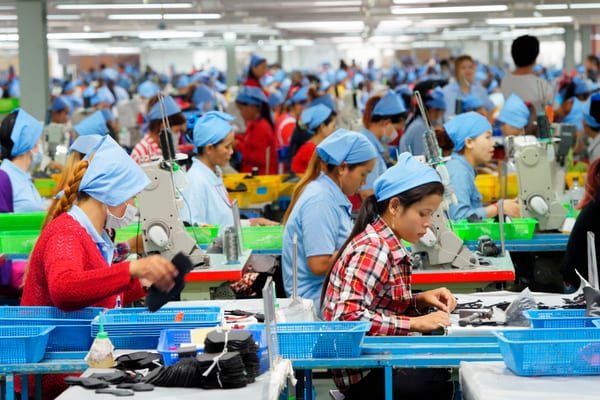Bhopal 40 years on: lessons for corporate accountability
3 December 2024 | 10 mins

This month marks the 40th anniversary of the lethal gas leak at Union Carbide’s Bhopal plant in India, which in December 1984 killed thousands of people.
Four decades later, the lessons of Bhopal and similar incidents in other countries around the world have not fully been learned and applied. Bhopal is a painful reminder of ongoing corporate impunity.
In the tragedy's aftermath, the government of India sought justice through lawsuits. US courts ruled that the case should be tried in India, and sought assurance from the US based Union Carbide that it would cooperate with the trial, despite concerns over the local judiciary's ability to handle it. Company officials never appeared in an Indian court to face criminal charges. The Indian government took over the litigation process, denying the survivors their agency. They concluded a controversial $470 million settlement in 1989. Victims objected, feeling excluded from negotiations and receiving inadequate compensation, which amounted to approximately $568 per victim.
Obstructions to corporate accountability
The Bhopal plant today remains a toxic site. Efforts to hold Dow Chemical, which acquired Union Carbide in 1994, accountable have been obstructed, with the company claiming Union Carbide is a separate entity and its liability no longer exists.
The Bhopal disaster and its aftermath point to significant ongoing gaps in corporate accountability. Despite evolving international standards and legal frameworks, multinational corporations continue to exploit legal loopholes to avoid responsibility. The lack of legal enforcement mechanisms has left the victims of Bhopal, and many other disasters worldwide, without justice.
This is not to suggest that companies should not sell off unprofitable, non-strategic, or unproductive assets as part of their mergers and acquisitions, to streamline processes, to improve business efficiency, to give the corporation a renewed business focus, and to align corporate objectives with new targets. But when companies take actions with the specific intent of avoiding potential liabilities due to environmental pollution, unlawful land acquisition, or potential litigation because of human rights abuses associated with operations, there are adverse consequences. It creates a protection gap for human rights.
In the years since the Bhopal incident, the Indian Supreme Court has established rules of absolute liability, absolute offence, and enterprise liability. There has not been a disaster of Bhopal’s scale since. To suggest that this is owed merely to these principles would overstretch the point, but the fact remains that the court has laid down clear markers which, it must be presumed, have shaped decision-making in companies doing business in India, which has led to better conduct.
Other cases of creating distance from liabilities
At the same time, companies have drawn a different lesson: like Union Carbide and Dow, some have sought to to distance themselves from distressed assets or liabilities, as some recent cases show.
Oil companies are leaving the Niger Delta, the site of pollution and human rights abuses, leaving assets and liabilities to local operators.
A Swedish company sold its operations in war-torn Sudan in the hope of distancing its other assets from future claims by Sudanese victims; a Swedish court is now trying two former executives of the company in an eagerly-watched trial.
An American jury recently awarded $38m in compensation to eight Colombian families because a US company had paid militia to secure its operations, and the militia had then gone on a killing spree.
Other companies have attempted to shield their assets and have been required by the UK Supreme Court to disclose transactions to people likely to be affected, which include potential future creditors, such as victims and survivors with claims against the company over pollution or health impacts.
What such examples reveal is the utter inability of many legal systems to require compliance, enforce accountability, prosecute perpetrators, and provide remedy. Laws do exist to address corporate abuse, but there has been abysmal failure on the part of governments and the judiciary in ensuring justice. Difficulties in applying the principle of corporate veil, inapplicability of laws extraterritorially, and rules such as forum non conveniens all continue to frustrate the quest for justice. Without a proper trial, discovery of evidence becomes difficult, and the onus is on victims to provide evidence, and the corporation has little incentive to prove that it is in compliance with regulations.
Recommendations to avoid future Bhopals
Prosecutors unfamiliar with the laws of different countries, and the languages of victims and survivors, are often reluctant to take on complex cases because they are difficult, and rights-holders are often not citizens of the country involved. Also noteworthy, laws often permit companies to create complex holding patterns, making traceability of ownership and establishing responsibility more difficult. The consequence is the absence of remedy. This cannot go on.
In a forthcoming IHRB report, we outline several areas requiring urgent global attention, including the need for clearer, transparent sharing of information about the known toxicity of hazardous materials, and a record of incidents when they occur so that the right lessons can be drawn and corrective action taken. We also call for the creation of a new fund to which hazardous industries contribute as contingency for future liabilities.
At the national level, our report stresses that governments hosting hazardous industries or seeking investment from such companies need to improve their regulatory capabilities. Governments have sometimes lacked resources, and sometimes lowered standards by relaxing regulations to attract hazardous industries who face more stringent standards in the developed world. Concerted efforts, including possible market-based incentives, may become necessary to spur action. We suggest this could include clearer reporting to stock markets about contingent liabilities, and stricter supervision and enforcement of existing laws regulating critical industries.
The report also urges host governments to require any investor in hazardous industries to disclose potential risks and vigorously assess safety standards and potential harms. That includes passing laws enabling victims’ groups and affected communities with a say in any transaction of asset disposal, including merger and acquisition, the effects of which may create adverse consequences for their claims.
Recalcitrant companies should be delisted, and in extreme instances, wound up, if they persistently cause harm. We stress that home governments should apply their laws on corporate actions overseas when there are instances of egregious harm to human rights.
Barriers that make it harder for victims’ and survivors’ groups to launch legal proceedings should be removed. Since evidence-gathering is so difficult, and power imbalances are a reality, governments should place the onus on corporations to demonstrate they have complied with safety standards.
At present many businesses are able to arbitrage between different national regulations because international laws permit them to do so. They do not implement superior standards from their own jurisdiction in countries where they invest, precisely because they do not have an incentive to do so, and because laws permit such actions. While businesses can legitimately arbitrage different jurisdictions over matters such as taxation and conditions that enable business to operate smoothly, such arbitrage should not be permissible in matters concerning human rights. Responsible companies, which adhere to standards such as Europe’s corporate sustainability due diligence directive, and the revised OECD guidelines, as well as the UN Guiding Principles on Business and Human Rights, should lead by example. They should also share with regulators and affected communities all information about potential harms and make provisions for compensation, by setting aside funds for such contingencies.
In the end, there will always be excuses why it is not expedient for companies to take such actions, especially when it is not required legally. But a tragedy as ghastly as Bhopal must serve a larger purpose. Such an event should touch the conscience of all regulators, prosecutors, and corporate executives, so that the much cited phrase, ‘never again,’ used in other contexts, finally becomes reality.




